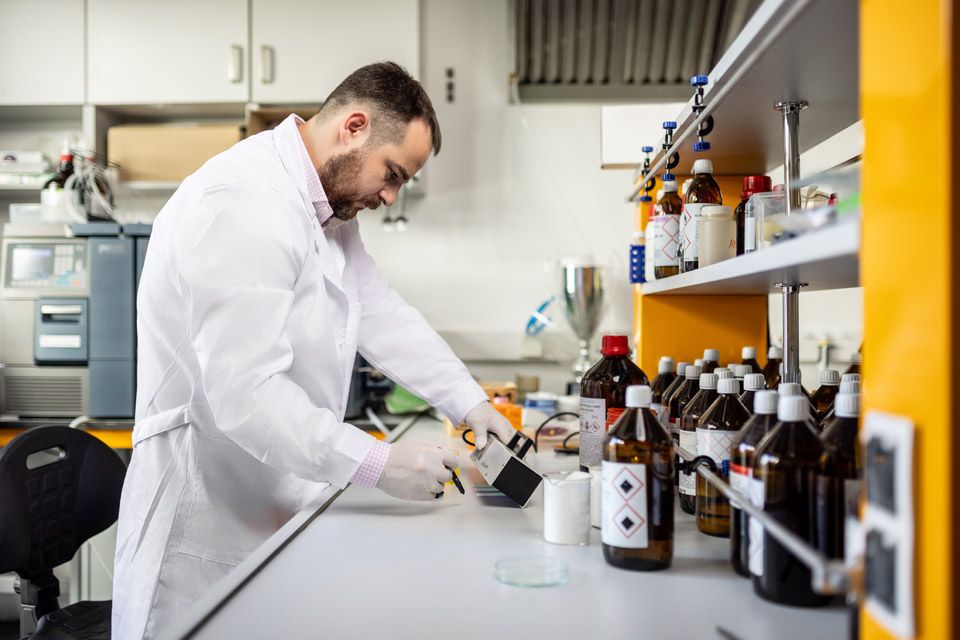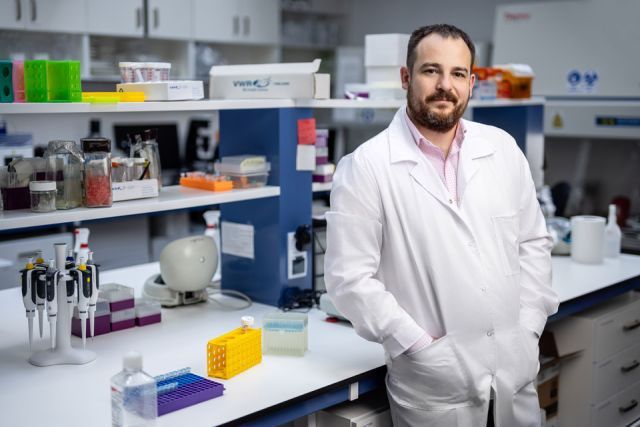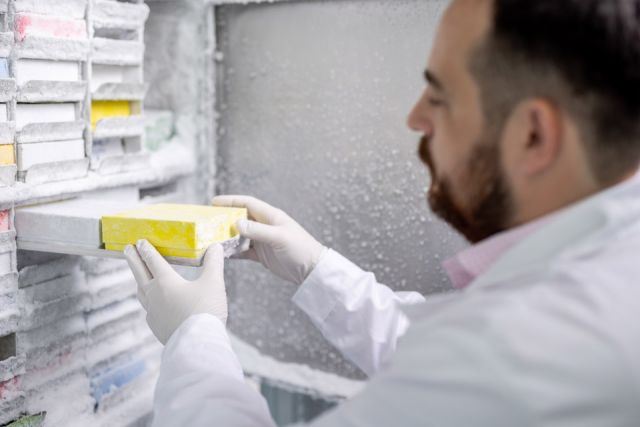Principal Investigator
:
dr hab. inż. Marcin Poręba, prof. PWr
Wrocław University of Science and Technology
Panel: NZ5
Funding scheme
: OPUS 20
announced on
15 September 2020
Breast cancer, and especially triple-negative breast cancer, represents a major challenge for contemporary medicine. Effective treatment requires an early diagnosis, accurate disease classification and a personalised therapeutic approach. To better understand breast cancer, scientists study its biomarkers, i.e. its molecular “fingerprints”, which can then be used to design new treatments. However, our analyses of the genome, proteome and metabolome of cancer cells still leave many gaps in our understanding of cancer mechanisms. This research project is specifically focused on the activome, or the set of active enzymes that potentially play a key role in cancer development. In particular, we are looking at proteases, or proteolytic enzymes that behave like molecular scissors. In the future, understanding their precise role can prove very useful for developing novel cancer therapies.
Our project rests on three research pillars.
 dr hab. inż. Marcin Poręba, photo Łukasz Bera
First, we are using mass cytometry, a game-changing technology that allows us to analyse more than 50 parameters simultaneously on individual cells in order to identify the specific enzymes active in cancer cells. To this end, we have also developed unique, metal-tagged chemical probes (TOF-probes) which, unlike antibodies, only detect active enzymes. This approach will allow us to produce a more detailed picture of the proteolytic landscape of tumour cells, opening up new frontiers in cancer diagnosis. Second, we are designing a new generation of antibody-drug conjugates (ADCs). These innovative molecules deliver drugs to cancer cells with very high accuracy and activate them only in the presence of selected cancer-specific proteases so as to minimise their systemic toxicity, which represents a serious problem for current ADC therapies. Efficacy is tested on cell lines and animal models. And lastly, we are using TOF-probes in magnetic resonance imaging (MRI). These metal-tagged probes not only support diagnostics but also allow us to track treatment effectiveness in real-time. The solution may prove a game-changer in cancer treatment monitoring.
dr hab. inż. Marcin Poręba, photo Łukasz Bera
First, we are using mass cytometry, a game-changing technology that allows us to analyse more than 50 parameters simultaneously on individual cells in order to identify the specific enzymes active in cancer cells. To this end, we have also developed unique, metal-tagged chemical probes (TOF-probes) which, unlike antibodies, only detect active enzymes. This approach will allow us to produce a more detailed picture of the proteolytic landscape of tumour cells, opening up new frontiers in cancer diagnosis. Second, we are designing a new generation of antibody-drug conjugates (ADCs). These innovative molecules deliver drugs to cancer cells with very high accuracy and activate them only in the presence of selected cancer-specific proteases so as to minimise their systemic toxicity, which represents a serious problem for current ADC therapies. Efficacy is tested on cell lines and animal models. And lastly, we are using TOF-probes in magnetic resonance imaging (MRI). These metal-tagged probes not only support diagnostics but also allow us to track treatment effectiveness in real-time. The solution may prove a game-changer in cancer treatment monitoring.
These three research pillars allow us to look at breast cancer from another angle. By studying the activome, or the enzymes that are active in cancer cells, we are able to identify new, previously undiscovered therapeutic targets. Innovative ideas such as the selective peptide linkers used in ADCs or the application of TOF-probes in cytometry and MRI testing may put us on a path toward more precise and less toxic cancer treatments. Our preliminary results are promising. Thanks to the use of novel peptide linkers, we have managed to obtain therapeutic conjugates that also show greater stability, selectivity and activation efficiency as compared to those used in currently available treatments for many cancers, including breast cancer.
Project title: Dissecting cancer activome to develop new generation of antibody-drug conjugates
dr hab. inż. Marcin Poręba, prof. PWr
Dr hab. inż. Marcin Poręba, Prof. PWr, works at the Faculty of Chemistry and the Faculty of Medicine of the Wrocław University of Technology, where he specialises in biological chemistry and bioimaging. Specifically, his research interests centre on designing and synthesising new chemical molecules for the detection of medically important enzymes based on fluorescence and mass cytometry. In addition, his research group works on developing a new generation of antibody-drug conjugates for applications in cancer treatment.


